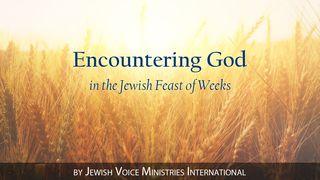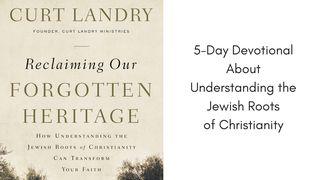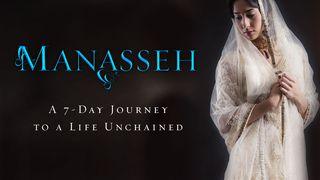Cities Of Refuge: Running Toward GraceSample

Even if you’d never heard of the Cities of Refuge before this study, it is likely that you’ve heard of the city of Hebron. As opposed to most of the Cities of Refuge, which are little more than rubble now, or whose exact location is still unknown, Hebron is a modern city in Israel that is often in the international news. Being the burial place of Abraham, Isaac, and Jacob, along with Sarah, Rachel, and Leah, it is often a point of contention between the three religions that claim Abraham as their patriarch. This was also the place where David was crowned king and lived for the first seven years of his reign.
The meaning of the name Hebron is related to the word for fellowship, alliance, or being joined together (Strong’s #2266). Although we may see the high walls of the refuge cities as there to lock the manslayers inside to atone for their crimes, within those walls there was also a fascinating alliance, one I believe was designed by Yahweh to give us a picture of how the body of Christ should operate.
Although Levi, the son of Jacob and the father of their tribe, was so violent at Shechem after the defilement of his sister (Gen. 34: 25-31) and was also involved in selling his own brother into slavery (Gen. 37:25-28), the Levites ended up being the only tribe willing to stand firm against the egregious idolatry of the Golden Calf (Exod. 32).
For their faithfulness, even though it meant carrying out justice against many of their own people, they were given a special calling—that of sacred service to Yahweh. This unique position came with many blessings and privileges, but it also came with strict guidelines and limitations, the greatest of which was that the sons of Levi did not inherit a territory within the Promised Land but instead were allotted cities throughout Israel, including those six Cities of Refuge.
This unique stipulation ensured that men who were focused solely on serving Yahweh were spread throughout the Land, so their upright influence could infiltrate every tribe. Their job was to respect and uphold the Law, teach the Word to the people, offer mercy when it was warranted, and to continually glorify Yahweh by word and deed.
As a result, these Cities of Refuge were inhabited by groups at the opposite ends of the spectrum: those who were consecrated for service to Yahweh, and those who were convicted of defiling the Land by the shedding of another’s blood.
Considering that a manslayer was cut off from their home and any means of self-sustenance, the Levites (who were themselves reliant upon the tithes of the people) would have been obligated to provide for even the most basic of the refugee’s needs: food, clothing, and shelter. Levites were expected to open their community to a person who was guilty of a crime and yet most likely was frightened, isolated, suffering, and perhaps even brokenhearted and without much hope.
Since the Levites were charged with teaching the Torah to the people, these manslayers would have had a front-row seat to the regular recitation of the Words of Yahweh—which was especially important because their imprisonment would not have allowed them to travel to the Tabernacle to celebrate the three most important festivals within the biblical calendar (Passover, Shavuot/Pentecost, Feast of Tabernacles) with the rest of their countrymen. The manslayers would have been surrounded by, tended to, and protected by men whose main occupation was to worship and glorify Yahweh.
Those of us who are part of the body of Christ can glean much from this alliance between “saints” and “sinners.” As followers of Yeshua, we are considered holy, set apart for a unique purpose, just as the Levites were. Our first occupation is to worship the Lord and glorify him. We are “strangers” in this world, our inheritance lies not with earthly things but instead in the kingdom to come. We are to be cities on the hill and lights in the darkness, and we are charged with upholding and teaching Truth in the midst of a depraved culture that despises that Truth (Matt. 5:14-16).
Like the Levites, we were once full of darkness but are now gifted with a fresh calling to reach out to those who are perishing without Yeshua, to share our resources with those in need, to be a haven for the sick, the dying, and the brokenhearted.
The Cities of Refuge are a great reminder to avoid our natural instinct to be insular. Although we must keep close fellowship with others inside the body of Christ, we must also be a people with open arms, ready and willing to offer love without condition or expectation to those most in need of Yeshua. As we run toward the grace we’ve been given, let’s draw others to him by being a true reflection of the Light of the World.
Questions to Consider:
How does the congregation you are a part of reach out to those who are suffering and brokenhearted? What results have you seen from outreach in your own community? In what ways is your congregation welcoming to those most in need of Yeshua? What ways can you be involved with growth in this area?
Do you have a tendency to surround yourself with only fellow Christ-followers, or do you lean more toward isolating yourself completely? What steps can you take toward breaking down those walls? Spend some time in meditation about what it means to “live in the world but not of it,” and ask Yahweh to reveal ways to show unconditional love to the hurting and broken people who live near you.
About this Plan

Connilyn Cossette, Christy Award finalist and CBA bestselling author, delves into the often-overlooked Cities of Refuge mentioned in both Numbers 35 and Joshua 20. This seven-day study will examine the history and purpose of these Levitical cities in order to discover how these cities are a portrayal of not only the perfect balance between Yahweh’s justice and mercy, but of our Messiah himself.
More
We would like to thank Connilyn Cossette and Bethany House, Publishers for providing this plan. For more information, please visit:
http://www.connilyncossette.com/
Related Plans

Encountering God in the Jewish Feast of Weeks

Reclaiming Our Forgotten Heritage

Isaiah's Legacy

Discover The Jewish Jesus

NO LIMITS, a Kingdom Mind-Set

The Joy and Hope of Christmas for Families

Stubborn Addictions

The Ministry of a Christian Stepmom: A Devotional for Brave Moms

God, Turn My Worry to Worship
